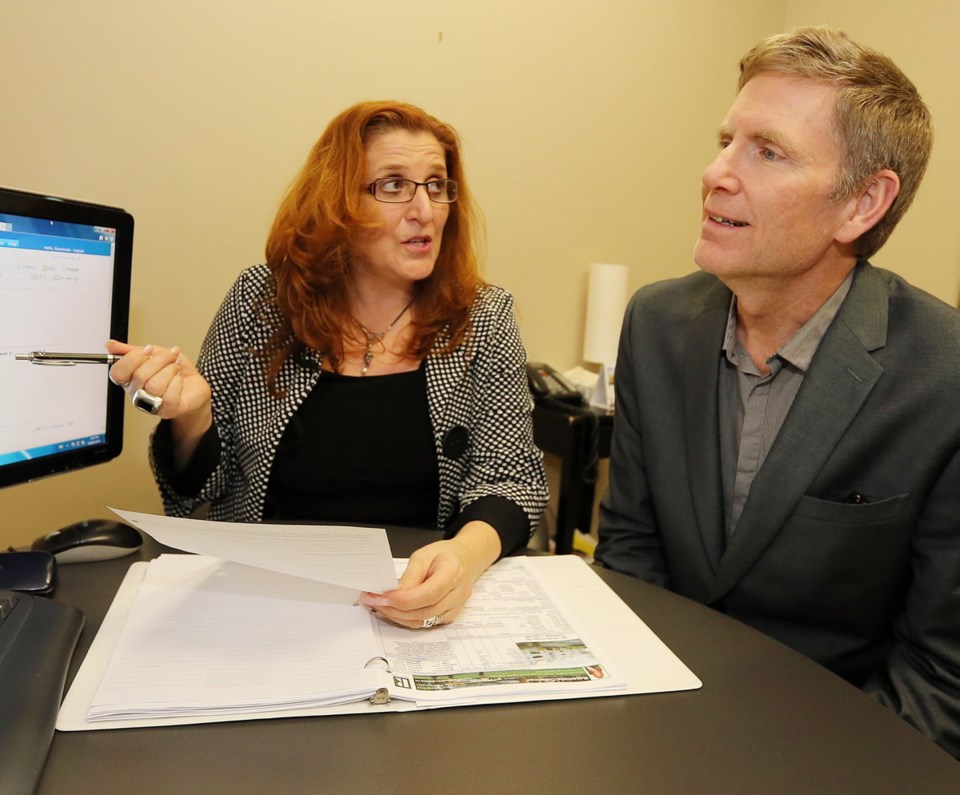Victoria investment adviser Nadine Young believes women may have a small edge in financial negotiations because they like to start them by building relationships.
“You need to build trust,” said Young, of Edward Jones Investments. “That may be where women excel over men and that is in that relationship-building.”
Young, who at 29 is already gaining a significant reputation in Victoria in the field of financial services, was commenting on a new international study that defies the stereotype that says men drive harder bargains.
In fact, the study says women don’t just equal men in financial negotiations. In some ways, they are proving themselves to be better.
The study, published by the American Psychological Association last month, showed women tend to out-perform men when they negotiate on behalf of another person, when they know the bargaining range and when they have had prior experience.
Researchers examined 51 studies from several countries, including the U.S., Holland, Germany, India and China. A total of 10,888 participants were involved, 4,656 women and 6,232 men.
Deb Alcadinho, founder and director of the Westshore Women’s Business Network, said she believes men and women approach negotiations differently.
Men see a negotiation as a contest to be won or lost. Women see a negotiation as a way to team up and resolve a problem.
“Men tend to be more competitive, where women are more collaborative,” said Alcadinho. “I believe our approach is a more well-rounded approach.”
Significantly, she sees lack of prior experience as becoming less of a deficiency for women.
“There is more opportunity for women to gain access to that training and development that is required to be successful in business,” said Alcadinho. “Negotiating skills are just one of those things.”
Rosemarie Colterman, an award-winning real estate agent at Royal LePage Coast Capital Realty, said she has worked well negotiating with both women and men. But overall, she feels most comfortable working on a deal with another woman. It comes down to the relationship, she said.
“I always try to become best friends with the real estate agent I am working with,” said Colterman. “‘Let’s work together as a team.’”
Colterman said she never loses focus on her client. That, after all, is the person for whom she is working to get the best deal — as is the other real estate agent.
But she said there is no reason both sides can’t walk away feeling satisfied. And it can be easier dealing with another woman.
“I just feel more comfortable talking to a woman,” said Colterman. “We tend to build up a confidence and are able to negotiate better for our clients.”
Dallas Chapple, a 23-year real estate agent who works for Remax Camosun, said negotiations with men tend to take a little longer. Often, it’s just a matter of ego.
“Women just want to get the job done,” said Chapple. “Men tend to want to prove a point.
“There is more negotiation to be done if it’s a man.”
Chapple said she always does her best to keep the big picture in mind and to keep her client focused on the ultimate goal: buying or selling a particular property at the best possible price.
She does not want clients kicking themselves in the morning when they realize they lost a property or a sale because they wouldn’t budge over a few thousand dollars.
“Women want to achieve the end, so they look at the bigger picture,” she said. “But how you solve things is important, because nobody in a deal should feel used or abused.”
The one area where women do not fare better than men, according to the study, is in negotiating on their own behalf, for a salary increase, for example.
Women “are not necessarily going to push as hard as a male counterpart might,” said Alcadinho.
“But I do believe we are learning those strengths and those traits as we become more involved in corporate business.”
